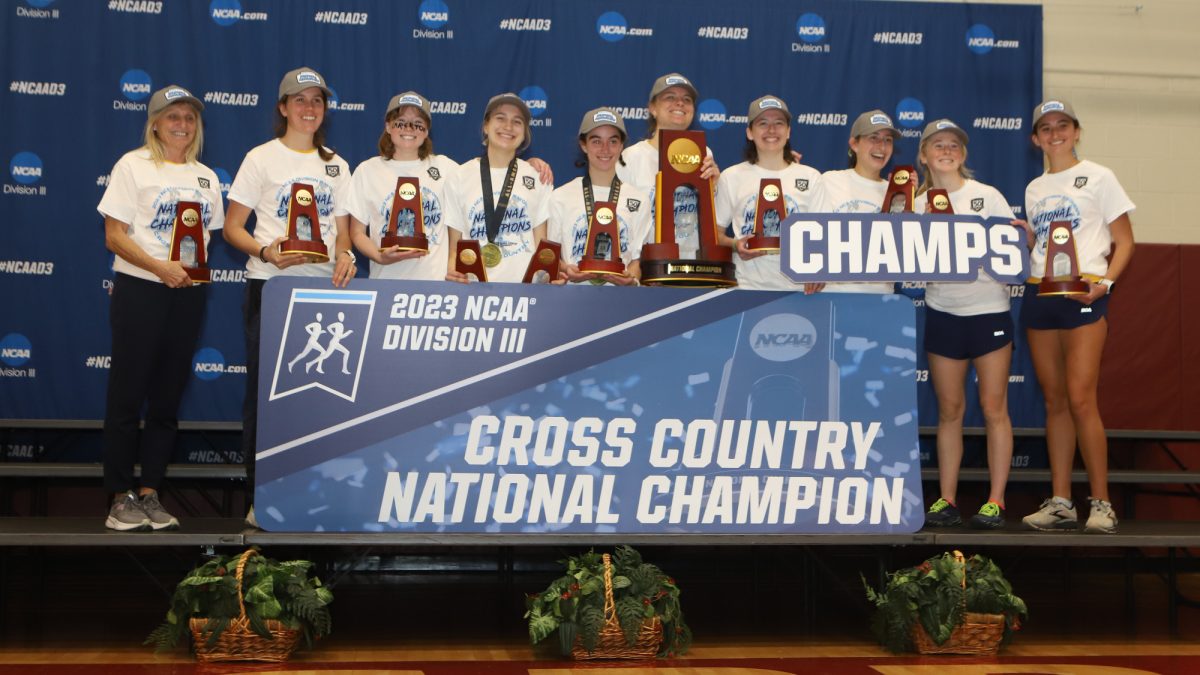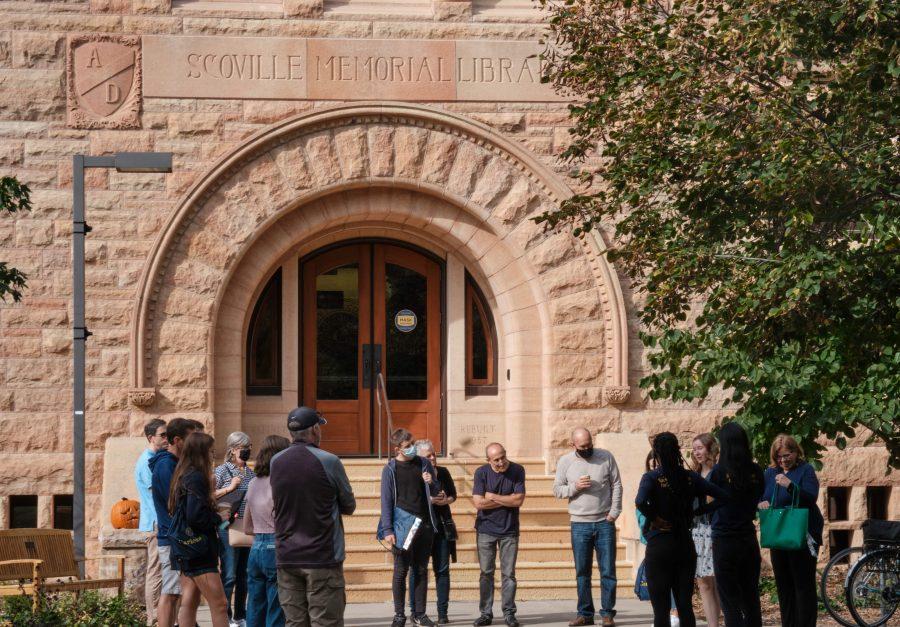“Whether it’s tea or sex, consent is everything.”
Upperclassmen at Carleton likely recall hearing these words from a stick-figure narrator during an educational video that uses tea as a metaphor for sex. In September 2019, incoming Carleton students attended a two-hour long CarlTalk on consent and healthy relationships during New Student Week (NSW), which used this video—along with student stories and discussions—to introduce the topic.
This seminar shifted in focus last year, which has led to concerns among students regarding the college’s approach to education surrounding sexual misconduct.
According to the office of Sexual Misconduct Prevention and Response (SMPR) Title IX Coordinator Laura Riehle-Merrill, in 2020 the “content of the CarlTalks shifted from being office-specific topics to focus on three general broad themes: well-being, belonging, and growth”. As a result, the CarlTalk “Connections and Consent”, was replaced by a new CarlTalk broadly labeled “Growth.” In place of consent, the presentation asked students to reflect on their identity and values and to set intentions for their transitions into life at Carleton.
“We shifted the program to broader themes in the hopes of meeting students where they are, and the Growth CarlTalk helps students create a larger framework for boundary-setting based on their own values, which feels like an essential building block for student development and healthy sexuality,” said Riehle-Merrill.
However, both first-year attendees and upperclassmen who staffed NSW expressed disappointment with this decision.
“When arriving at college, a big concern of mine was what sexual assault and harassment safety are like on campus, and the first step towards being aware of this topic is talking about consent in the first place,” said Mia Strubel Iram ’25.
“I think college is a place where the lines can be blurred about what consent means, especially with parties and people being intoxicated. Without a New Student Week talk clearly outlining what consent is and its importance, I think Carleton is playing a part in allowing rape culture to continue on campus,” Strubel Iram added.
Melissa Grande ’23 worked as a Peer Leader for the Office of Accessibility Resources (OAR) during NSW. When she heard that consent was not going to be covered in CarlTalks, she thought there had been a mistake.
“I distinctly remember how important it was to me to speak openly with my peers about sexual consent and safe sex practices when I was a freshman, so I couldn’t believe that the NSW coordinating team had seemingly approved to have it removed without anything else in its place,” said Grande.
“I found it extremely concerning that this meant the freshman class wouldn’t have an explicit conversation about what sex and consent look like in college, especially considering the social conditions that the pandemic put everyone in for the past year and a half,” she added.
In response, Grande and other NSW Leaders and Peer Leaders spoke to their NSW groups outside of the CarlTalks about consent.
“I thought it was our responsibility as some of the first members of the Carleton community that freshmen meet and trust to educate them and make them aware of the concept of consent. I do genuinely think Carleton could do more to support the work of SMPR and the Title IX Office, beyond just listing them as catch-all resources for ‘isolated’ instances of sexual assault. I somewhat thought that what happened during New Student Week with the consent talk seemed to be representative of a wider lack of effort, attention and urgency to confront sexual assault on Carleton’s campus,” she explained.
Sigrid Edstrom ’24 was another NSW leader who chose to discuss consent explicitly with her group in the discussion after the Growth CarlTalk.
“My peer leader and I ended up just scrapping the designated CarTalk [discussion] and used the one from two years ago about consent. I think it was way more useful for our new students than learning about our ‘personality islands.’ Also, our new students seemed way more engaged with our consent CarlTalk than the previously assigned one. I feel confident and good about our choice,” explained Edstrom.
Since CarlTalk administrators never explicitly stated why the consent talk was removed, student theories have grown in their absence. In the CSA minutes for October 11, 2021, Treasurer Rahul Kirkhope ’22 mentioned that he “talked to faculty who said [the removal of the talk] is because they don’t believe everyone is sexually active and this information might make people uncomfortable.”
At the same meeting, Jancyn Appel ‘23, CSA Class Representative, also discussed the Clery Report, an annual report on campus security and fire safety published by Security Services. She pointed out the increasing cases of stalking on campus—which grew from 2 cases in 2019 to 7 cases in 2020—as well as the continued presence of rape, fondling and dating violence cases on campus.
“I feel like we have a bubble mindset of ‘these things don’t happen’ on campus, and so then it isn’t talked about, and students don’t know how to connect with resources,” said Appel. “[Sexual violence] is an unfortunate reality of college for a lot of people. Plus, if you don’t explicitly talk about how students are supposed to react when these things happen, it’s a problem.”
Regarding future NSW sexual misconduct programming, Riehle-Merrill said the programming board has “heard clearly from our peer leaders that they preferred the CarlTalk from two years ago because it more directly addressed consent in the context of relationships.”
She added, “Student feedback has always been central to SMPR—in addition to reshaping next year’s CarlTalk to address consent more explicitly, we have created a ‘Consent and Boundaries’ workshop that student organizations and groups may request this year.”










